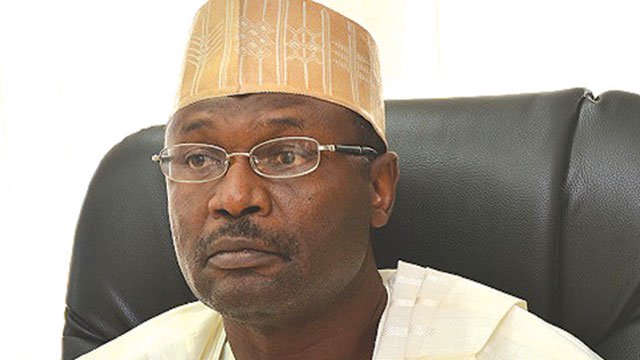The Independent National Electoral Commission has said it would create additional polling units across the country ahead 2023 general elections.
Chairman of the Commission, Professor Mahmood Yakubu gave the hint when he received Geographic Information System (GIS) support equipment donated by the European Centre for Electoral Support (ECES), in Abuja.
He said the Commission was already collaborating with the National Population Commission (NPC) to achieve the objective of delimiting Constituencies and creating new polling units that would cater for the voting needs of Nigeria’s increasing population.
He said: “Your assistance will be great in addition to what we have been trying to do. Already, the Commission is considering the possibility of creating additional polling units before the 2023 general elections”.
”It (Nigeria) is a huge country and the population is rising and each time myself and the Commissioners travel around the country and we see new settlements emerging, we wonder how would these new settlements be served by polling units so that Nigerians don’t have to travel long distances in order to vote on election day”.
Professor Yakubu said “at the moment we have 119,973 polling units, we also have over 57,000 voting points making a total of over 180,000 polling units and voting points, yet if you look at some of the satellite images and you place dots on spots where there are polling units in relation to the vast area where we have no polling units, we are still underserved even with the initiative of the Commission in operating voting points and voting point settlements, so GIS in our operation with the equipment that we have will be a great facilitator in the efforts of the Commission in that respect”.
National Commissioner in charge of the GIS Laboratory, Dr Mohammed Mustafa Lecky said “the GIS Laboratory in which the donated equipment will be utilized, is part of the INEC Strategic Plan and Strategic Plan of Action designed to improve access to accurate, complete and geospatially referenced high-resolution electoral data for decision making across all functions of the Commission.
”Over the course of its value-added work, the INEC GIS Laboratory would collect, store, process and make available electoral spatial delimitation data, including generating directional spatial maps for election day activities and making available Atlas of results of elections using adequately trained staff in mobile spatial data collection technology”, Dr Lecky added.
The Programme Coordinator of ECES, Ms Maria Mauro commended the Commission’s continued efforts to improve the electoral system. She said ECES would continue to assist the Commission in a variety of ways to achieve its goal.
